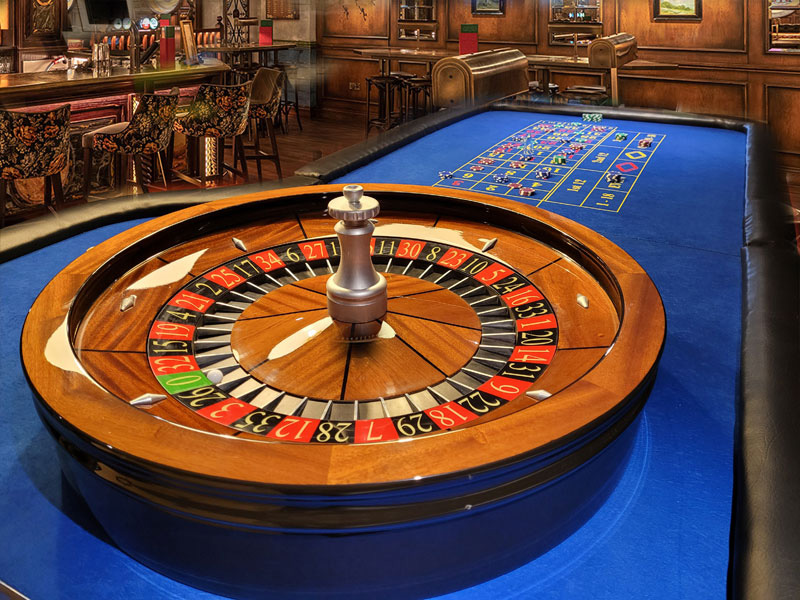
Casino gaming has long been a topic of fascination and controversy, attracting millions of players around the world. With a mix of chance, skill, and the thrill of uncertainty, casino games offer an exhilarating escape from everyday life. However, as entertainment becomes ever more available, it calls for a more thorough examination of the morality surrounding these games.
At the heart of the debate lies the question of whether casinos promote safe gambling or take advantage of at-risk individuals. The appeal of potential winnings versus the truth of losses can create a complex situation, and understanding this balance is essential for both players and operators. As we delve into the ethics of casino gaming, we will explore the responsibilities of casinos, the impact on society, and the measures that can be taken to foster a better gaming environment.
The Impact of Casino Gaming on Society
Gambling in casinos has a notable influence on society, affecting not only the financial landscape but also interpersonal dynamics and local frameworks. The funds generated from casinos can lead to job creation and boost regional economies, as they provide various employment opportunities in different sectors including hospitality, leisure activities, and retail. However, while the economic advantages can be significant, communities often struggle with the possible negative impacts that arise from increased gambling activity.
Moreover, the presence of casinos can lead to an rise in gambling addiction, presenting serious challenges for players and families. The excitement of casino games can quickly transform into a habitual habit, affecting personal relationships and leading to monetary issues. Many individuals may find it difficult with the loss of control over their gambling habits, resulting in a need for community support services and interventions to address this growing issue. The social cost of addiction can extend through kinships and neighborhoods, creating an urgent need for sensible gambling approaches.
In addition to the economic and social consequences, casino gaming often reflects cultural attitudes towards uncertainty and entertainment. It can foster a sense of joy and leisure, attracting visitors and boosting tourism. However, this allure may also conceal the wider implications of gambling as a method of entertainment, raising ethical questions about its promotion and accessibility. As communities weigh the benefits and disadvantages of casino gaming, the need for responsible practices and oversight becomes increasingly critical in ensuring that the beneficial elements are enhanced while minimizing the negative effects.
Moral Issues in Gambling Activities
The ethics of gambling operations often center around the risk for addiction and its effects on individuals and households. Gambling can lead to significant monetary distress, impacting not only the gamblers but also their families. As individuals become caught in the allure of winning, many lose sight of their financial limits, which can result in devastating outcomes such as insolvency. This poses moral questions about the responsibility of gambling establishments in fostering safe gaming practices and providing support for those who may be struggling with betting addiction.
Another major concern is the promotion of gambling to vulnerable groups. Casinos often target low-income individuals or neighborhoods with the offer of fast rewards, which can continue cycles of poverty and despair. In this situation, the ethics of marketing strategies used by casinos come under examination, as they may exploit the need of people seeking an way out from financial hardships. This exploitation raises moral questions about the honesty of the betting industry and its responsibility to protect its most vulnerable patrons.
Additionally, the effect of casino operations on the community as a whole cannot be ignored. While some argue that casinos create employment and stimulate local economies, others point to the social costs associated with dysfunctional gambling, increased crime rates, and a burden on public resources. Balancing financial advantages with the risk for social harm presents a challenging ethical dilemma for lawmakers and casino operators alike. The challenge lies in discovering a responsible approach that prioritizes the well-being of individuals and communities while still allowing for the pleasure of gambling gaming.
Regulatory System and Duties
The regulatory framework surrounding casino games is developed to ensure fairness, honesty, and gambler security. Different government bodies and gaming commissions create and enforce regulations that dictate how gambling games operate, the standards for product design, and the protocols for managing rewards. These regulations differ by region but commonly involve licensing requirements for providers and strict measures to prevent fraud and scams.
In addition to regulatory bodies, gambling operators bear considerable duty in preserving ethical standards within their establishments. They must adopt ethical gaming practices that promote player protection and awareness, including offering self-limitation options and providing information about the hazards related to gambling. Operators are also responsible for training staff to recognize signs of problem gambling and be aware of the appropriate actions to assist patrons in need.
Moreover, transparency in gambling operations is essential for building and preserving public faith. Gaming establishments should present clear information about the chances of games, advertising opportunities, and any connected risks. By promoting an environment of transparency and accountability, operators can help reduce the possible harmful impact of gaming while enhancing the overall gaming experience for all gamblers.
non Gamstop casinos
